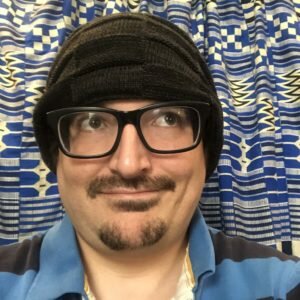Part 2: “A Search For An Authentic Life” by Alec Ott
Cross-posted from Smash Cut Culture:
Essential Authors #1: Andrew Klavan
In 2015 I joined Liberty Island Media, a start-up book publishing company focusing on genre fiction, as their West Coast Editor and began acquiring and editing novels. I also started writing my own novels and helping other writers develop their stories. Now, in this ongoing series at Smash Cut Culture I’m going to start highlighting the authors who I’ve returned to most often in working with writers. As I’ve studied and met both fiction and non-fiction writers over the years these are the ones with the most depth, originality, and humanity. Reading their books and understanding the ideas that matter to them has helped change my life for the better and I hope it can do the same for you.
Andrew Klavan has worn many writer’s hats over the years: hard-boiled thriller novelist, Hollywood screenwriter, essayist for The Wall Street Journal and contributing editor for City Journal, longtime new media innovator in blogging, hilarious YouTube videos, podcasting at the Daily Wire, and now celebrated memoirist with The Great Good Thing: A Secular Jew Comes to Faith in Christ.
I’ve known Klavan since 2009 when I started editing full time; I came to know him better from 2011-2015 as his editor for his columns and blog posts. (Not that Klavan ever needed much editing!) See this reflection I wrote about him and the potential of his ideas in 2013. In more recent years I’ve been particularly interested in coming to understand how Klavan’s novels have generated such success for him, and in turn communicating those lessons to writers—and myself.
The Great Good Thing offers tremendous insight in this regard too. While the book is outwardly concerned with the question of Klavan’s religious transformation from secular agnostic “cultural Jew” to Christian believer, it also offers equal insights on his journey as a writer, revealing the influences and practices that shaped him. Here’s a big one from page 92:
“But reading Chandler did have some good effects on me over the long run. For instance, I came upon this piece of advice in his letters: ‘The important thing is that there should be a space of time, say four hours a day at least when a professional writer doesn’t do anything else but write. He doesn’t have to write . . . But he is not to do any other positive thing . . .’ I began to follow that advice. I wrote my first full novel when I was fourteen. And yes, as a novel, it was every bit as excellent as you would imagine, but as a first exercise in self-discipline, it wasn’t bad at all. That discipline became a habit and the habit solidified. It made me a productive writer even in the worst of times. It created a little space of sanity in days of deepening madness. I’ve written at least four steady hours, and usually more, every day for most of my life, and I think it saved my life at times.”
Aim to allocate four hours a day – and to instill it as a habit if you are going to be serious as a writer. In this recommendation we find what I regarded in 2013 as the Key Klavanism, and in a sense I still do: the effective writer is the balanced writer. Too many writers take an idea to an extreme and end up creating both inaccessible work for others and unlivable, miserable lives for themselves. Klavan describes in some chapters when he had found himself in these dark mental places – hung up on a high concept book idea and his own confidence that he could executive it, from pages 163 and 164:
“I holed myself away and read and researched and thought and wrote and outlined—which sent me crazier by the day. The failure of my first novel and the sudden shock of having pulled myself from a job I loved to lock myself up again in solitary study, threw me into horrible troughs of dissociation and melancholy. I would lose track of myself for half an hour at a time… Gripping my fountain pen, I wrote for hours, feverishly. I once produced more than 150 handwritten pages in a single session. I kept the blinds drawn to block out the neighborhood.”
Don’t do that! I’ve been in similar spots too and it’s just not worth it and the writing produced won’t match the magical, angelic utterings in your head. Books work when there are multiple ideas and cross-purposes engaged within them. Books built around single, all-important, Big Ideas tend to fall flat. (As an editor I see them so often in submissions – and they’re boring as hell!)
There are many more lessons one can glean from Klavan’s books and over the coming months I’ll be exploring some of them at my book blog, where I’ll highlight compelling passages and ideas and try to encourage debate. (Titles in particular that are first on my blogging list: True Crime, If We Survive, Empire of Lies, The Identity Man, and The Uncanny.) For now, those looking to see how exciting and thought-provoking a ride a Klavan thriller can be should pick up Werewolf Cop, a book that balances both genre-based excitement with literary and philosophical depth. It’s currently my favorite Klavan, but we’ll see if that assessment changes as I continue digging into his collection and blogging the results. Any other Klavan fans out there are welcome to join me!
The End
Part 6, the beginning of Section II, coming next week. If you would like to participate in this discussion of Andrew Klavan’s writing please send your contribution to Submissions[@]LibertyIslandMag.com



Comments